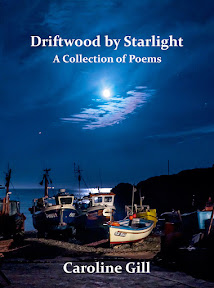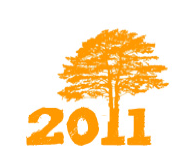 Laugharne, South Wales© David Gill 2009
Laugharne, South Wales© David Gill 2009I was delighted to receive my copy of the winter issue of
The Seventh Quarry (9) this last week. As usual it is beautifully produced with a good quality cover and a cornucopia of poems from most corners of the globe (from Wales to America; from China to Catalonia and beyond). The international flavour permeates the pages: there is, for example, an interview with
Dr Rita Malhotra, a mathematician (and poet) from the University of Delhi. Poems that particularly caught my eye in this issue include
Punta Los Lopos, Carmel Bay, California by
Aeronwy Thomas,
At our Backyard Birdfeeder by Frane L. Helner and the catchy and witty
Sing Along by Jean Salkilld, to name but three.
Peter Thabit Jones (Wales) is the editor and
Vince Clemente (America) is the Consultant Editor.
The Seventh Quarry casts its net wide in geographical terms and consequently provides the reader with an eclectic and colourful selection of contemporary poetry. Peter's passion for craft shines through the pages. The magazine comes out twice a year and has recently 'become a cooperating partner with
Cross-Cultural Communications Publishers, New York'. The magazine is peppered with a carefully chosen selection of advertisements, including one for a recent (and recommended) publication from Rack Press,
Cuffs by
Byron Beynon. If you are not familiar with
The Seventh Quarry, why not forego that cappuccino and treat yourself instead to a sample issue for £3.50/$10 (£7/$20 for a year's subscription).



























